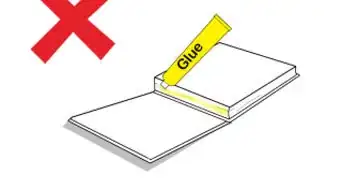wikiHow is a “wiki,” similar to Wikipedia, which means that many of our articles are co-written by multiple authors. To create this article, volunteer authors worked to edit and improve it over time.
This article has been viewed 55,425 times.
Learn more...
Most libraries acquire books through an acquisitions department. Depending upon the size of the library, this could be a title held by the head librarian, or an entire department. A library acquisitions department aims to examine the library's budget and buy books and media that the library needs on a regular basis. If your library would like to get new books, but doesn't have the budget to do it, you may be able to help. A library's standards and buying decisions are often different from those of a company or individual. This article will tell you how to buy books for the library.
Steps
-
1Inquire about the library's book buying process. Many libraries subscribe to lists that automatically send them books from certain publishers. You will want to avoid doubling up on books, or buying something that the library doesn't need.
-
2Arrange to buy books according to the library's fiscal year. Many libraries make the majority of their acquisitions at the beginning of their fiscal year. This is a good time to buy books, if you are part of library staff, but if you want to donate, you may want to help out later in the year.
- Ask if the library needs a purchase order for every book it purchases. Many libraries are publicly funded, and a purchase order, or PO, helps them keep track of their budget.
Advertisement -
3Contact the "Friends of the Library" organization. Friends of the Library is a common non-profit organization that helps to support library collections and presentations. They often have a fund to help the library receive books or collections they need most.
-
4Ask for a current list of books the library needs to acquire. Most libraries put an emphasis on acquiring very new books; however, they may also be in need of replacements for lost or stolen copies.
-
5Consult the library on whether they prefer hardcover, paperback or library bound books. Most libraries prefer library-bound or hardcover books because they stand up to more circulation than paperback books.
- Library bound books are bound with extra stitching and a hardcover, but are often less decorative than the original covers. Most library bindings are made through a special service, although some publishers have started to provide library bindings.
-
6Understand that library books are often more expensive than privately bought books. Libraries aim to keep copies of new books on hand for patron use, so they often pay the full price from the publisher. Library binding also adds money onto the process, which the library hopes will add value with further readings. Few new releases are acquired for less than $25 (18 euros, 16 pounds).
-
7Inquire where the library buys their books. Book stores and even Amazon.com often give a discount to libraries and schools.
- Some small to mid-sized libraries have Amazon accounts that receive an extra discount. If you go onto this site, you can buy books from their wish list.
-
8Ask the publishing company if they can send the library the book before receiving payment. Unlike other book purchases, sometimes payment is required within 30 days of receipt of the books. This allows the library to put it into the system.
-
9Buy the books that fit within your library's criteria. If the book is not library bound, ask if you should arrange for a library binding to complete your library book purchase.
Community Q&A
-
QuestionI am part of a volunteer group that is about to re-open our local library. How can we find a supply of books that we can lend and have returned in the cheapest way?
 Community AnswerYou could charge people 25 cents a day for an overdue book, and if they lose or damage the book, they would have to pay a fraction of the price of the book.
Community AnswerYou could charge people 25 cents a day for an overdue book, and if they lose or damage the book, they would have to pay a fraction of the price of the book. -
QuestionIs it possible to ask the state for free career books for rural areas?
 Kim GTop AnswererYes. If you are interested in a career in agriculture, you can contact your state's Agricultural Extension for more information. Otherwise, contact your state's Department of Labor for other types of jobs in rural areas.
Kim GTop AnswererYes. If you are interested in a career in agriculture, you can contact your state's Agricultural Extension for more information. Otherwise, contact your state's Department of Labor for other types of jobs in rural areas.


































































